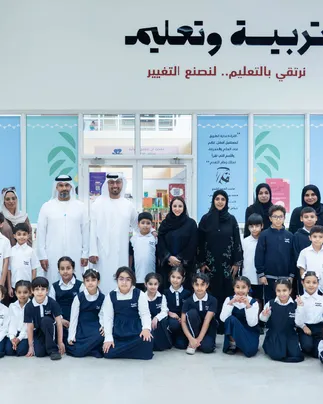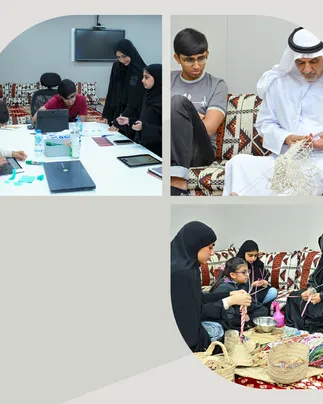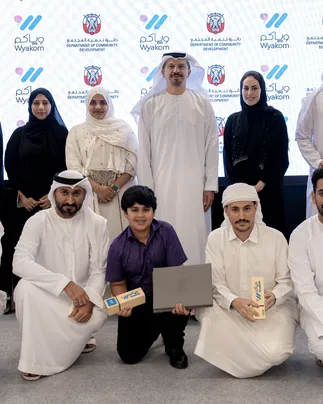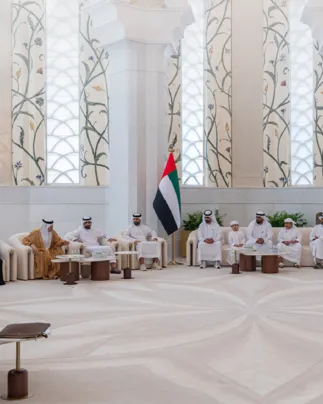The Emirates College for Advanced Education (ECAE) organized the LINC Summit 2025 at the Nabd Al Falah Community hub in Abu Dhabi, reflecting the objectives of the Year of Community.
The summit highlighted the role of education in driving community engagement, supporting comprehensive educational transformation powered by innovation and artificial intelligence, and encouraging strategic collaboration among all network members across the UAE.
The annual meeting brought together more than 150 educational leaders, teachers, and key stakeholders, offering a programme filled with interactive events and activities. These focused on collaborative inquiry and reflective practice, the development of teachers’ leadership and pedagogical skills, the implementation of applied research, AI-enhanced education, integration and inclusivity in both public and private education, and the establishment and expansion of a culture of innovation in schools throughout the country.
In her keynote address, Dr May Laith Al Taie, Vice Chancellor at ECAE, said: “The Innovative Learning Communities Network meeting is part of our ongoing strategic efforts to advance the full educational potential of the community, and to improve and develop the educational system supported by innovation, and educational practices based on artificial intelligence and emerging technologies. This aligns with the vision and aspirations of our leadership for a promising educational future. The meeting also embodies our belief in the importance of cooperation, harmony, and communication at the national level in building a flexible educational network ready for the future of education in the UAE.”
Professor David Pedder, Deputy Vice Chancellor for Academic at ECAE, said: “Innovation in education truly makes a difference in society and science when strong leadership works hand in hand with the collaboration and research of educators and teachers. When we offer a platform like the LINC Network, we are able to strengthen educational collaboration and drive innovation throughout a wide network of schools. This empowers educators and teachers to create and improve comprehensive, inclusive learning environments that not only inspire students but also help them reach their highest academic goals and become active, contributing members of society.”
The meeting featured a speech by His Excellency Sulaiman Al Kaabi, Assistant Undersecretary for the Professional Development Sector at the Ministry of Education, and a keynote presentation by the Chairman of the Innovative Education Communities Network Committee, who reviewed the most significant developments and outcomes from the past year. Committee members also participated in a discussion session with strategic partners in the education sector, addressing the network’s ongoing development and improvement efforts. During the Innovation Tour, themed Portraits of Impact, educators and teachers showcased the innovations developed throughout the year, while the Foreseeing the Future workshop highlighted key areas of innovation that will be prioritised going forward.
The 2025 summit spotlighted a range of educational innovations, including the expanded integration of AI into teaching and learning through new applications and tools that support personalised and future-ready education. The event also highlighted inclusive education initiatives that promote the integration and support of students with disabilities, as well as research projects and real-world achievements by students. More than 200 educational practitioners received training in incorporating applied research into their teaching practices.
A practical approach to teaching mathematics using interactive tools led to significant progress in mastering algebra skills, while transformative approaches to teaching Arabic and Islamic studies emerged through challenge-based and play-based learning. Workshops were also designed to involve more than 30 parents in using artificial intelligence at home, strengthening collaboration between families and schools, and reflecting ECAE’s commitment to supporting the Year of Community initiative.
The summit provided opportunities for communication and the exchange of experiences, enabling participants to learn together. The event concluded with recommendations from speakers and participants, which shaped the outcomes of the meeting and embodied a shared commitment to advancing education in the UAE.
Membership in the LINC network saw a 68 per cent increase in schools and a 58 per cent rise in educators and teachers compared to last year. Four Himam Centres for Inclusive Education Services joined the network, underscoring the growing impact and significance of the initiative in both the public and private education sectors.
The LINC Network, a collaborative platform established by the Ministry of Education, is committed to improving educational outcomes by supporting and harnessing local educational innovations in participating schools. Through these communities, teachers receive support to enhance inclusive teaching and learning practices, improve student engagement, integrate AI into lessons, and develop strategies for comprehensive school improvement. ECAE continues to prepare for the future of education in the UAE, inspiring educators to lead change, promoting meaningful collaboration, and equipping the next generation of learners.
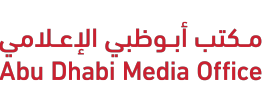

_web-0-690-0-0.webp?k=419762ff45)
